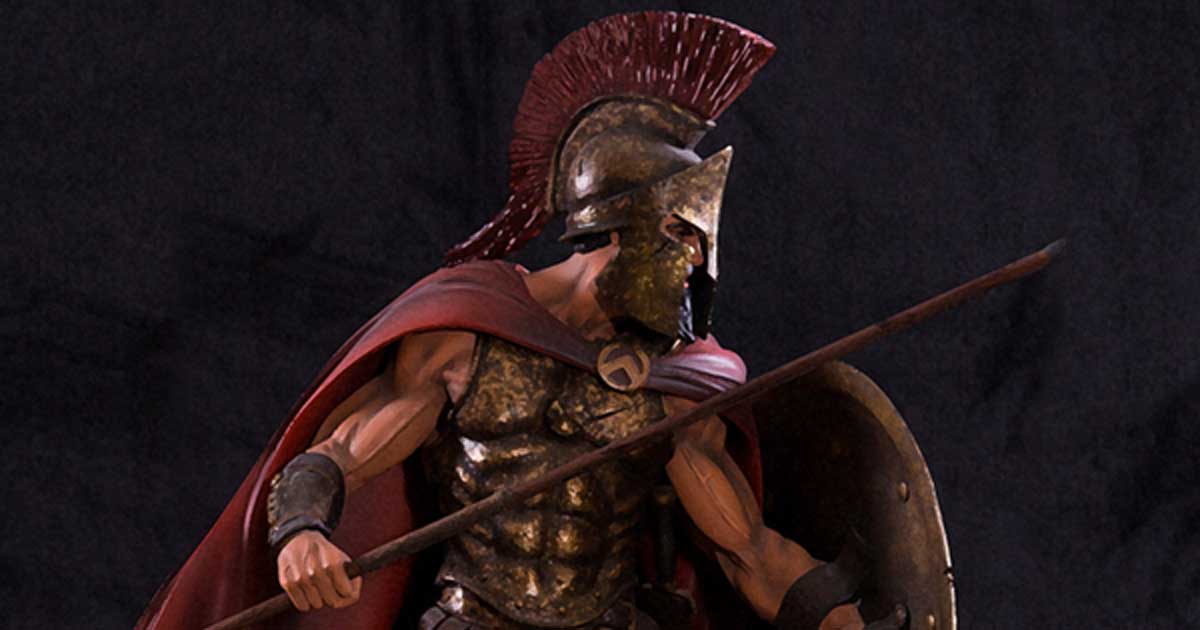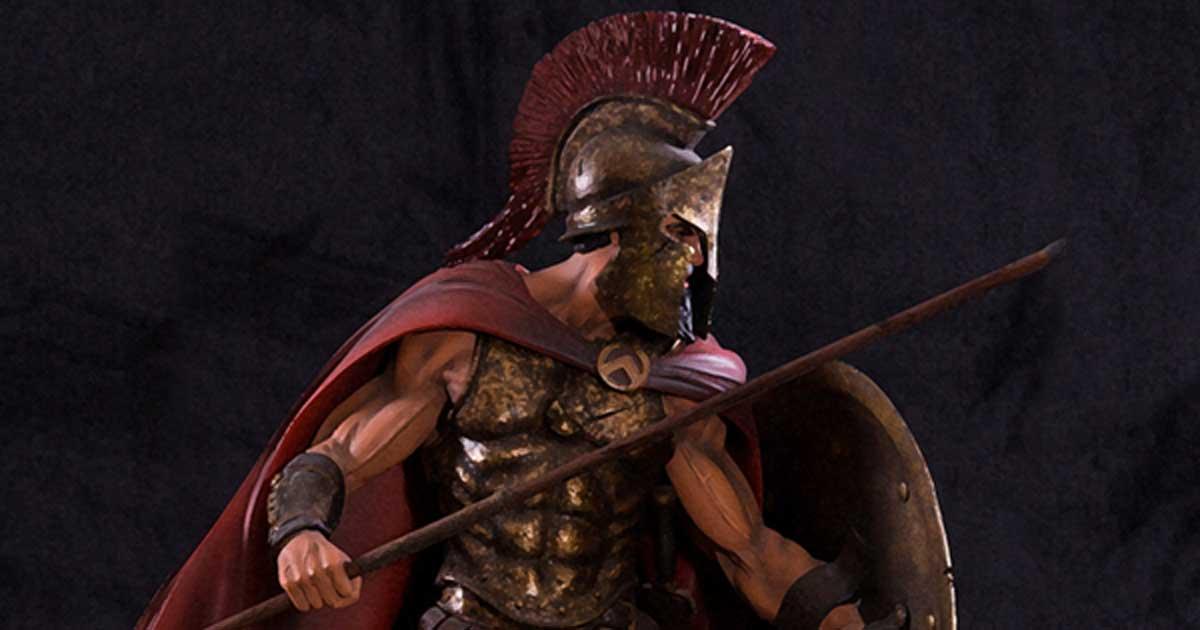Agesilaus II: The Life and Legacy of Sparta's Influential King
The annals of ancient Greek history are replete with legendary figures who have shaped the course of world events, leaving indelible marks on civilization. Among these, Agesilaus II, the Spartan king, stands out as a remarkable leader whose reign significantly influenced Spartan society and the broader Greek world during a tumultuous period. Despite living in the shadow of more renowned contemporaries like Alexander the Great and Themistocles, Agesilaus II’s strategic acumen, military prowess, and complex diplomatic maneuvers cement his place as a leader of considerable note.
Early Life and Rise to Power
Born in 444 BC, Agesilaus II belonged to the prestigious Eurypontid dynasty, one of the two royal families of Sparta. Even in his formative years, Agesilaus exhibited traits that would define his leadership style. Unusually for a Spartan king, he had a physical disability; he was reportedly lame in one leg. However, this did not diminish his reputation for martial excellence or his ability to inspire his peers. Indeed, Agesilaus’s physical limitations only seemed to heighten his determination and resolve.
His rise to power was somewhat unexpected and occurred under extraordinary circumstances. King Agis II, of the opposing Agiad line, passed away in 400 BC, leaving no clear successor. The usual Spartan protocol would have favored Agis’s son, Leotychidas. However, questions regarding Leotychidas’s legitimacy—fueled by the Spartan law which allowed allegiance to be transferred if royal descent was in doubt—led to Agesilaus being anointed king. His brother, the influential Spartan king Agesilaus I, also played a crucial role in ensuring his ascension.
The Persian Campaigns
One of Agesilaus's most significant undertakings was his military campaign against Persia in Asia Minor. The campaign was initiated at the behest of the Spartan polis and its allies, who sought to extend Greek influence after their successful repulsion of the Persian invasions, which culminated in the Greco-Persian wars earlier in the century.
Agesilaus launched his campaign in 396 BC, quickly establishing himself as a formidable strategist and tactician. Understanding the limitations imposed by Spartan manpower, he relied heavily on exploiting local dissension within Persian territories. Agesilaus not only sought to liberate the Greek cities of Asia Minor from Persian influence but also aimed to destabilize the Persian Empire by supporting insurrections.
However, internal Greek politics and hostilities, particularly the emergence of a potent anti-Spartan coalition within Greece, necessitated Agesilaus’s premature return to his homeland. Nevertheless, his efforts in Asia Minor demonstrated his capacity to extend Spartan influence beyond its traditional boundaries and earned him considerable fame across the Greek world.
A Leader Amidst Internal Conflict
Upon his return to Greece, Agesilaus was thrust into the thick of Greek political turbulences. His homecoming coincided with the Corinthian War (395–387 BC), a significant conflict fought between Sparta and an alliance comprising Athens, Thebes, Corinth, and Argos, with backing from Persia. Despite facing numerically superior forces and logistical challenges, Agesilaus's military strategies again came to the fore.
His leadership during the battles of Nemea and Coronea highlighted his tactical brilliance, as he successfully commanded his troops to victory against formidable opponents. However, the war revealed the growing challenges Sparta faced in maintaining its hegemony over Greece. Agesilaus worked tirelessly to uphold Sparta's supremacy against shifting alliances and the persistent threat of Persian financial influence in Greek affairs.
Diplomacy and Political Maneuvering
Agesilaus was not only a man of war but also a shrewd politician. His diplomatic skills came to prominence in the aftermath of the Corinthian War, which concluded with the so-called King's Peace or Peace of Antalcidas in 387 BC. This treaty, brokered under Persian auspices, allowed Sparta to preserve its territorial integrity, albeit at the cost of relinquishing control over the Greek cities of Asia Minor back to Persia.
Though controversial, the treaty underscored Agesilaus’s pragmatic approach to foreign policy, choosing to safeguard Spartan interests through concession when military might would prove too costly. However, the Peace of Antalcidas also illustrated the shifting power dynamics in the Greek world, with Persia becoming the arbiter in Greek affairs—a development many attributed to Sparta’s earlier aggression.
Agesilaus's reign also marked a period of introspection for Sparta. Recognizing the need to adapt to changing times, he worked toward institutional reforms aimed at reinforcing the military structure and improving civic administration. While intrinsically conservative, these measures reflected his understanding of the nuances of governance and the necessity for sporadic change even within the rigid Spartan framework.
Through a combination of martial, diplomatic, and political acumen, Agesilaus II carved a legacy that was as influential as it was contested, becoming an iconic yet elusive figure of Grecian history.
Challenges to Spartan Supremacy
Under Agesilaus II, Sparta faced an era characterized by both external threats and internal transitions. Although his military campaigns demonstrated brilliance, they also highlighted the inherent vulnerabilities within the Spartan system. One of the most pressing internal challenges was the significant demographic decline—Spartan citizens were dwindling in number. This decline severely strained the city's ability to maintain a robust military, which traditionally relied on the strength and discipline of its hoplite soldiers.
To mitigate this, Agesilaus explored unconventional measures. He opened the ranks to a broader spectrum of society, including perioikoi (non-citizen inhabitants of Laconia) and even some Messenian helots granted conditional freedom. These moves were unprecedented in the strict Spartan hierarchy and reflected Agesilaus's practical response to Spartan needs. Despite criticism from diehard traditionalists, such measures allowed Sparta to temporarily bolster its military ranks.
Meanwhile, the emergence of Thebes as a significant opposition power further complicated Agesilaus’s reign. The Theban ascendancy was epitomized by the hegemony of Epaminondas, whose innovative military tactics at the Battle of Leuctra in 371 BC shattered the longstanding dominance of the Spartan army. This defeat not only marked a dramatic shift in Greek militaristic balance but also strained Agesilaus's authority, forcing Sparta into a defensive posture for the first time.
Life on the Reflective Horizon
Beyond his external battles, Agesilaus was also a man of introspection, keenly aware of his mortality and the historical challenges facing his city. He engaged in literary pursuits, notably influencing Xenophon, the Athenian historian, and philosopher. A friend and admirer, Xenophon chronicled Agesilaus’s military exploits and leadership qualities, painting an image of a king who was both a staunch defender of Spartan values and a foresighted innovator.
During his latter years, Agesilaus turned attention towards internal reinforcement—working to rebuild Spartan institutions and instill a renewed sense of discipline among younger Spartans. He remained a proponent of the agoge, the rigorous educational and training regime designed to mold Spartan youth into ideal citizens and warriors. Agesilaus's vision of Sparta was one where martial prowess harmonized with culture and strategy, ensuring survival against any adversarial advancements.
His vision often led him into philosophical reflections on governance and the transient nature of power. His discourse with notable contemporary philosophers and political minds of the era impacted the intellectual currents, casting light on matters of statecraft, justice, and leadership.
The Nubian Campaign
Agesilaus's life in warfare found an unexpected chapter towards its end in the service of Egypt. Responding to a call from Pharaoh Nectanebo I for military aid against Persia, Agesilaus led a Spartan contingent to Egypt around 361 BC. This campaign underscores Agesilaus's lifelong commitment to opposing Persian expansion but also illustrated a flexible approach, as it aligned to foreign policy with potential economic and strategic gains for Sparta.
Agesilaus was nearly eighty when he accepted this mission, a testament to his enduring vigor and strategic mind. While in Egypt, his leadership was crucial in securing initial victories, boosting the morale and tactics of Nectanebo's forces. However, his time in Egypt was cut short by impending political upheavals back home. Despite not witnessing a conclusive end to hostilities, his presence fortified Egyptian positions, exemplifying his role as a seasoned statesman and warrior to the very end.
The Final Return and Legacy
His final return journey to Sparta turned fateful at the coastal city of Cyrene (modern-day Libya), where Agesilaus passed away in 360 BC. His death marked the end of an era, drawing widespread mourning and reflections on his extended influence over Spartan political and military life.
Agesilaus II's legacy remains a narrative of discipline, leadership, and adaptability. Though elements of his tenure were marred by military setbacks, he exhibited decisiveness and a willingness to adapt, qualities emblematic of strategic imperative. Under his reign, Sparta weathered many storms, maintaining a significant, albeit reduced, presence in Greek political affairs.
Historians and contemporaries continue to debate his impact—some hail him as a conservative reformer who sought to fortify Spartan values in fluctuating contexts, while others critique his diplomacy and ultimate conservatism as contributors to Sparta’s eventual decline. Nevertheless, Agesilaus’s story is marked by his uncompromising dedication to Sparta, advocating for a city-state that unique blend of cultural austerity, aristocracy, and military excellence.
Today, Agesilaus II's life serves as a testament to the complexity of leadership in ancient times. His reign, interlaced with triumphs and trials, illuminates the perpetual struggles intrinsic to maintaining power amidst shifting sands of political, social, and military landscapes. Through his exploits and policies, Agesilaus II endures as a defining character in the historical tapestry of ancient Sparta—his legacy resonant in the study of leadership, governance, and the timeless intricacies of power.
Reflections on Leadership and Philosophy
Agesilaus II’s life and reign offer a rich field for philosophical reflection on leadership. Unlike many other Spartan leaders, who often kept to the rigid codes of silence and restraint, Agesilaus was both a man of action and thought, engaging frequently with the intellectual environment that flourished during his time. His interactions with Xenophon birthed insightful commentaries on governance, warfare, and personal ethics. Agesilaus's belief in practical philosophy showcased his approach to diplomacy and military strategy, forming an enduring testament to the relationship between philosophical understanding and leadership efficiency.
His rule can be seen as a case study on the balance between tradition and innovation. Agesilaus was a conservative at heart, devoted to preserving the Spartan agoge and the social hierarchy that defined Spartan life. However, he was pragmatic enough to recognize the need for reform in the face of demographic shifts and military pressures. Agesilaus's tendency to leverage the abilities of non-citizens in the army was an innovative response to these challenges, highlighting his flexible approach to upholding Spartan supremacy.
Strategic and Ethical Implications
As a strategist, Agesilaus excelled in adapting to varied military landscapes. His campaigns against Persia, despite being cut short, were marked by strategic brilliance, utilizing local alliances and tactical ingenuity to challenge one of the world’s superpowers. This adaptability was mirrored in his leadership during the Corinthian War, where he demonstrated resilience and battlefield prowess against coalitions of Greek city-states. His strategic vision was consistently underlined by an ethical dimension, often aligning with the broader Hellenic yearning for autonomy from Persian domination.
His leadership, however, was not without controversy. The Peace of Antalcidas was particularly contentious, as it effectively surrendered Greek cities in Asia Minor to Persia's control. While some historians critique this decision as a relinquishment of Greek freedom, others view it as a pragmatic step to secure mainland Greece’s stability. This treaty reflected Agesilaus's acute awareness of geopolitical realities and his willingness to compromise in the short term to achieve longer-term stability for Sparta—a contentious yet crucial dimension of his leadership ethos.
Legacy in the Broader Greek Context
Agesilaus II’s legacy is reflective of the broader transition within the Greek world, from the classical age's height to a period characterized by fluctuating power dynamics. His tenure marked the persistence of Spartan militaristic tradition clashing with a new era of diplomatic fluidity and diverse political alliances.
Sparta's inability to maintain its hegemonic status was indicative of larger shifts within the Greek world. The rise of Thebes, and later Macedon under Philip II and Alexander the Great, marked the waning of Spartan influence on the international stage. These transitioning dynamics underscored the limitations of a strictly martial society in navigating the complex political landscapes that characterized late classical Greece.
Nevertheless, Agesilaus remains a central figure in discussions of Spartan and Greek history. He demonstrated an ability to adjust traditional expectations to face emergent challenges. His reign revealed both the resilience and fragility of Spartan society—a resilience embodied in his unyielding desire to maintain Sparta as a substantive power, and fragility revealed in the eventual necessity of reform and adaptation.
Contemporary Views and Historical Evaluation
Modern historians view Agesilaus II through varying lenses—some commend his military and diplomatic acumen, while others critique his conservative inclinations which possibly deterred more radical but necessary reforms. These analyses form the ongoing dialogue about Sparta's decline and the role leaders like Agesilaus played in this historical unfolding.
Despite the varied interpretations, Agesilaus's life provides invaluable insights into the intersections of military strategy, diplomatic finesse, and the complexities inherent in ruling a legacy-bound polity. His efforts to navigate these waters parallel modern leadership challenges, offering lessons in the adaptability, foresight, and balance of power within dynamic environments.
Even centuries posthumously, Agesilaus II's life and leadership strategies continue to resonate within educational and historical narratives. His reign exemplifies the potent mix of courage, practicality, and philosophical insight necessary for effective leadership amidst the ever-present flux of human affairs. Agesilaus’s ability to govern amidst societal constraints and external pressures cements his enduring relevance, fueling ongoing scholarship and interest in one of antiquity's most storied civilizations.
In sum, Agesilaus II’s legacy stands as a testament to Spartan resilience and its enduring mythology. His life unfurls as an epic of ambition, innovation, and the indomitable spirit of a ruler determined to steer his society through the erratic tides of history—forever etched in the legends of Sparta and the broader annals of human civilization.













Comments